Updated 07/16/21. I get asked a lot of questions about makeup. “Is makeup bad for my skin? Is it clogging my pores? Is it okay to wear it every day? What’s the best kind to use for my skin type?” The fact is that you’re likely wearing makeup for 12 to 15 hours per day, so it’s definitely affecting your skin more than you realize. That’s why it’s so important to recognize how your makeup products, habits, and techniques are affecting your skin. Keep reading to see 12 common mistakes people make when choosing, wearing, and removing makeup. Plus, learn my expert advice for ensuring your skin stays in the best possible state with fewer lines, wrinkles, clogged pores, and blemishes.
- 12 Common Makeup Mistakes That Are Hurting Your Skin
- 1. You Go to Bed Without Removing Your Makeup
- 2. You Count on Cleansing Wipes to Remove Your Makeup
- 3. You Wet Your Skin Before Removing Makeup
- 4. You Think Makeup Is Bad for Your Skin and That You Need to Let It Breathe
- 5. You’re Not Careful When Choosing Certain Makeup Products If You’re Prone to Clogged Bumps
- 6. You Allow Makeup to Interfere With a Blemish’s Natural Healing Process
- 7. You Mix Your Makeup With Sunscreen
- 8. You Don’t Limit The Use of Oil-Based Eye Makeup Removers
- 9. You Tug on Your Eyes When Removing Eye Makeup
- 10. You Remove Your Makeup Right Before Going to Bed
- 11. You Neglect Your Makeup Brushes
- 12. You Wear the Same Makeup You’ve Been Wearing for Years
12 Common Makeup Mistakes That Are Hurting Your Skin
1. You Go to Bed Without Removing Your Makeup
Your skin is incredibly dirty at night. This is due to sebum (oil), bacteria, dirt, and makeup that collect throughout the day. Allowing your skin to marinate in this all night can lead to clogged pores, breakouts, and a dull-looking complexion. That’s why cleansing your skin every night and performing a nighttime routine that’s meant for your specific skin type is so important.
2. You Count on Cleansing Wipes to Remove Your Makeup
Despite their convenience, I never recommend using cleansing wipes to remove makeup since they can’t effectively clean the skin. They smear dirt, bacteria, oil, and makeup around the face without lifting anything off. Using a wipe is essentially the same thing as applying soap to the skin and then not washing it off. It’s simply not effective.
To make matters worse, most makeup products are oil-soluble, meaning they can only be dissolved with oil (remember, like dissolves like). That presents an issue when you’re using cleansing wipes to remove makeup since cleansing wipes usually have a high water content and can only remove water-soluble products. This means, in order to remove oily makeup, they require a lot of rubbing, pressure, and friction, which can cause redness and sensitivity. You’re better off removing your makeup with an effective, cream-based cleanser (more on that in just a second).
3. You Wet Your Skin Before Removing Makeup
When it comes to properly removing liquid foundation and water-resistant sunscreens, using a cream or lotion-based cleanser is your best bet. However, if you wet your skin with water before applying your creamy cleanser, it will dilute it and the makeup and sunscreen won’t break down as well as they would have, which will leave you with unclean skin. Here’s the best way to use a cleanser to remove makeup.
- Massage a cream-based cleanser onto dry skin (not wet skin) for 30 seconds.
- Wet your fingertips with water and massage through again for another 30 seconds.
- Rinse well with lukewarm water.
- Gently wipe the skin with a washcloth, facial sponge, or cleansing cloth.
4. You Think Makeup Is Bad for Your Skin and That You Need to Let It Breathe
The skin doesn’t have a respiratory system, so the concept of the skin being able to “breathe” is a myth. The truth is that makeup in the form of powder or liquid foundation can actually benefit the skin by giving it additional protection from the sun (even if it doesn’t list an SPF number!). Of course, you’ll want to choose the right makeup for your skin type to ensure it’s the best fit.
5. You’re Not Careful When Choosing Certain Makeup Products If You’re Prone to Clogged Bumps
Look at the ‘closed comedones’ in the image, below. That’s the skin of singer, Katy Perry. She’s someone who most certainly wears a lot of makeup, and as a result, it causes her pores to become clogged. Eventually, those can turn into blemishes as you can read about here.
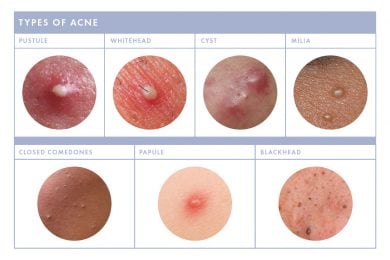
If you notice this is showing up on your own skin and you’re using primer, liquid foundations, cream blushes, or cream highlighters, then one or a combination of these could be the cause. I certainly understand wanting to have glowing, light-reflective, and poreless-looking skin, but a lot of the products used to achieve this look contain oils and emollients that might not be compatible with your skin. Then, add in the fact that they’re staying on your skin for hours at a time, and you’ll run into problems if you’re a skin type #1, #2, #3, or #4. I see this all the time with my clients who wear a lot of makeup.
If you suspect these are a problem for your skin, I suggest limiting their use and trying to figure out which one is the cause. There is no single primer or foundation that will work for every skin type, so you just have to experiment. It usually comes down to trial and error.
While there are certain makeup ingredients that are potentially comedogenic, it’s hard to stereotype. Just because an ingredient is potentially comedogenic doesn’t mean it will necessarily cause issues for your skin. That’s why I’m not a huge fan of calling out specific ingredients to avoid. Learn more about comedogenicity, here. Then, check out the experiment I did to come with a list of the best foundations for oily skin.
Regardless, after cleansing your skin at night, apply a product like Rapid Response Detox Masque. This can help keep pores clean and reduce the chance for makeup to cause clogged bumps and blemishes. Leaving it on the skin for just five minutes can do the trick.
How Do You Get Rid of Clogged Bumps?
Once you determine and eliminate the cause of clogged bumps, using a well-formulated, acid-based serum with salicylic acid should help get rid of them. On that note, read my complete guide to clearing clogged pores—once and for all.
6. You Allow Makeup to Interfere With a Blemish’s Natural Healing Process
The goal with any blemish is to make it go away as quickly as possible with the least amount of scarring, right? Well, your makeup could be interfering with that. You see, when you have a blemish, there is already inflammation happening. When makeup is applied, the oils and synthetic perfumes can travel into the blemish and cause further aggravation.
So, what can you do to stop this from happening? Start by going through your standard morning skincare routine. After applying sunscreen, which should be the last step in your routine, wipe the blemish clean with a damp cotton swab. Then, apply a thin layer of a product like the Daytime Blemish Gel. This will create an invisible seal over the blemish to prevent any makeup that’s applied afterward from aggravating it. Plus, it offers blemish-fighting properties.
7. You Mix Your Makeup With Sunscreen
Anytime you alter a formula, you can change its efficacy. In the case of sunscreen, it’s important to know that the product has gone through rigorous testing by the FDA to ensure it’s truly protecting your skin from the sun’s harmful rays. Mixing it into your makeup can affect that end result, which is why I suggest finding a lightweight foundation and applying it over your daily sunscreen. Read more about common sunscreen mistakes.
8. You Don’t Limit The Use of Oil-Based Eye Makeup Removers
Removing eye makeup before bed is necessary. However, unless you’re wearing waterproof mascara that requires oil to remove, I suggest you use a water-based eye makeup remover. That’s because oil-based removers can travel into the eyes and cause unnecessary undereye puffiness. Also, if they’re not washed off really well afterward, any eye product that’s applied on top may not be able to penetrate as deeply (that’s because oils have a large molecule size, so anything with a smaller molecule size, such as eye cream, will have a hard time penetrating through them). It’s the exact same way I see so many people use face oils wrong.
9. You Tug on Your Eyes When Removing Eye Makeup
Why is the eye area the first place to show signs of aging? It’s because the skin is very thin and gets the most wear and tear from smiling, squinting, and rubbing (those who take contact lenses in and out every day add additional stress to the skin tissue). That’s why it’s important to be mindful of how much pressure and friction you’re applying when you remove your eye makeup—no pulling or tugging! Be delicate with the skin in this area and limit the use of waterproof eye makeup, since it can be so much harder to remove.
Pro tip: Saturate a cotton pad with an oil-free eye makeup remover and hold it onto the eye area for 20 seconds to melt away makeup and mascara before gently wiping away. (Watch how to properly remove your eye makeup without damaging the skin around your eyes.)
10. You Remove Your Makeup Right Before Going to Bed
Like I said before, removing your makeup before bed is critical. However, I don’t suggest waiting until the last second to do so. Ideally, you would perform your nighttime skincare routine earlier in the evening rather than right before your head hits the pillow.
There are two benefits to performing your nighttime routine earlier rather than later in the evening. The first is that you’ll be less likely to rush through it or be lazy and skip it altogether due to fatigue. The second has to do with the skin’s circadian rhythm. It was always thought that the skin’s repair processes kick in during sleep, but it’s now believed that they kick in when the day goes from light to dark. I discuss this further in this video. The point is, do your routine earlier in the evening and your skin will be better off for it.
11. You Neglect Your Makeup Brushes
I know it takes effort, but if you’re not washing your makeup brushes at least once a month, you’re introducing dirt, oil, and bacteria to your skin every time you use them. This is definitely not helping the condition of your skin. Ideally, you would wash them once a week (or even more often if you have blemish-prone skin). However, if you’re someone who rarely washes them at all, start with a goal to wash them once a month. (As I’m writing this, I’m reminded that my makeup brushes are long overdue for a washing!)
12. You Wear the Same Makeup You’ve Been Wearing for Years
Sure, this isn’t necessarily a skin issue, but it’s something to consider anyway. If you’ve fallen into a rut with your makeup, and you’re doing the same look day in and day out, it’s time to freshen things up. Try something new! Play with color and texture to achieve a different result. Or, consider scheduling an appointment with a professional makeup artist for expert advice. As my wise friend Bethany, an image consultant, puts it, “there is nothing more aging for a woman than never changing her look.” Don’t be afraid of change. In fact, fear of change could be what’s holding you back from being your best, most vibrant-looking self.
Next, see how a makeup artist covers her acne and acne scars!
Celebrity Esthetician & Skincare Expert
As an esthetician trained in cosmetic chemistry, Renée Rouleau has spent 35 years researching skin, educating her audience, and building an award-winning line of products. Her hands-on experience as an esthetician and trusted skin care expert has created a real-world solution — products that are formulated for nine different types of skin so your face will get exactly what it needs to look and feel its best. Trusted by celebrities, editors, bloggers, and skincare obsessives around the globe, her vast real-world knowledge and constant research are why Marie Claire calls her “the most passionate skin practitioner we know.”
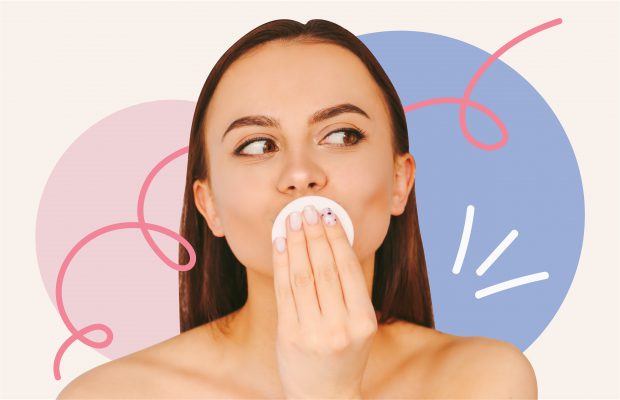
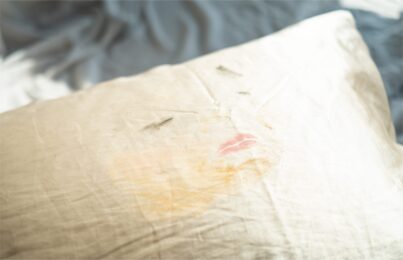
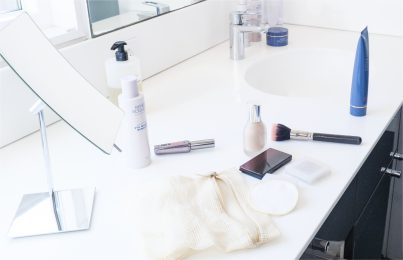
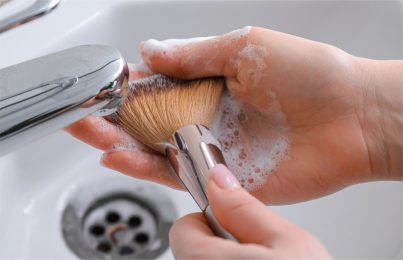
Comments:
This blog is an eye-opener for anyone who loves makeup! The tips shared here are incredibly valuable, offering insight into common skincare mistakes that many of us may not even realize we’re making. From avoiding harsh scrubbing to opting for gentle makeup removal methods, each point is a reminder to prioritize skin health. It’s empowering to learn how small changes in our makeup routine can make a big difference in the long run. Thank you for sharing these valuable insights!
Posted By: Krisha Patel |
Thank you for sharing this. I agree with all your advice. All you said are crucial to prevent our skin from looking older.
Posted By: AesthetHouse |
This product has been my go-to for reducing the appearance of my stubborn dark spots and hyperpigmentation. My skin looks more even and radiant. click here to embrace a flawless complexion!
Posted By: Soji |
Thank you for this information. good job.
Posted By: houda |
It’s such a good post. Thanks for sharing useful information blogs
Posted By: Airbrush Makeup in Pune |
Very helpful! Thanks!
Posted By: Clarissa |